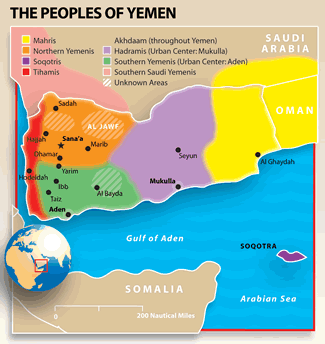Ancient Egypt was one of the world's great civilizations. Dynasties of pharaohs ruled Egypt from 3200 B.C. to 341 B.C. Egypt fell to the Persian Arab Muslim conquest in 640 A.D. Arabs, who introduced Islam and the Arabic language to Egypt in the seventh century, ruled for the next six centuries. Ottoman Turks conquered the country in 1517.
After the completion of the Suez Canal in 1869, Egypt became an important transportation hub, but fell heavily into debt. To protect its investments, Britain seized control of Egypt from 1882 until 1914. They granted full sovereignty to Egypt after World War II.
Egypt is the most rapidly growing country in the Arab world, and with limited arable land, resources are overtaxed, and society is stressed. For that reason, there is a large Egyptian diaspora that has migrated to other parts of the world. They are most likely to migrate to other Arabic speaking countries where they work temporarily then return to Egypt. Others migrate to Western countries. The biggest destination for those in the West is the United States. Despite that, Egyptians make up only one in 200 of America's immigrant population. Most Egyptians in the US migrated before 2000, especially between the 1950s and 1970s. There was a small influx of them when the uncertainties of the Arab Spring came about in 2011. We can expect the number of Egyptians in the US to increase in the coming decades. Egyptians are most likely to live in California, New York or New Jersey.
There have been three major factors causing Egyptians to leave. This country has a glut of young men who need to start a career, but few opportunities. There are also not enough opportunities for those with a good education. Thirdly, periodic strife in Egypt causes some to leave their country. Persecution of Jews and Christians has meant that these religious communities have left for more tolerant nations. They often come with student visas then obtain high paying jobs. Egyptians in the US are over-represented as medical doctors. Their median household income is higher than the general US population. Egyptians have their own cultural diaspora groups. Surprisingly, there are also many Egyptians in the US who are poor.
Islam became the state religion of Egypt in 1980. The majority of Egyptian Arabs are either Shafi, Maliki or Hanafi Sunni Muslim. A large minority of them in the United States are Sunni Muslim, but most are Coptic Christians.
Copts brought Christianity to Egypt very early, where it remained for 1,000 years as the primary religion. Even today, the great majority of the Christian population are still members of the Coptic Church. Evangelical Christians are a small percentage.
Those who follow Christ must have love and boldness to be a witness to other Egyptians. With a growing missionary vision, the Egyptian Church has the potential to reach both fellow Egyptians and Arabic speaking people groups in other countries for Christ. The Church is limited by lack of training opportunities, experience and funds. If additional resources are provided, church planters are willing to go.
Pray that Egyptian Christ followers would become a mighty missionary movement for the Lord in the United States.
Pray for Egyptian Arabs to have spiritual hunger and a discernment that will lead them to the cross and the empty grave.
Pray for Egyptian Arab Christians to put their faith in the Risen Christ rather any religious institution.
Pray for stability so that Egyptians in the US can provide well for themselves and their families.
Scripture Prayers for the Arab, Egyptian general in United States.
https://www.migrationpolicy.org/sites/default/files/publications/RAD-EgyptII.pdf
https://www.nytimes.com/2011/02/19/us/19return.html
https://www.middleeasteye.net/discover/new-york-egyptian-immigrants-untold-stories
https://gps.unm.edu/conference/sites/default/files/2019-02/Egyptian-Immigrants-in-the-US-Labor-Market.pdf
| Profile Source: Joshua Project |














